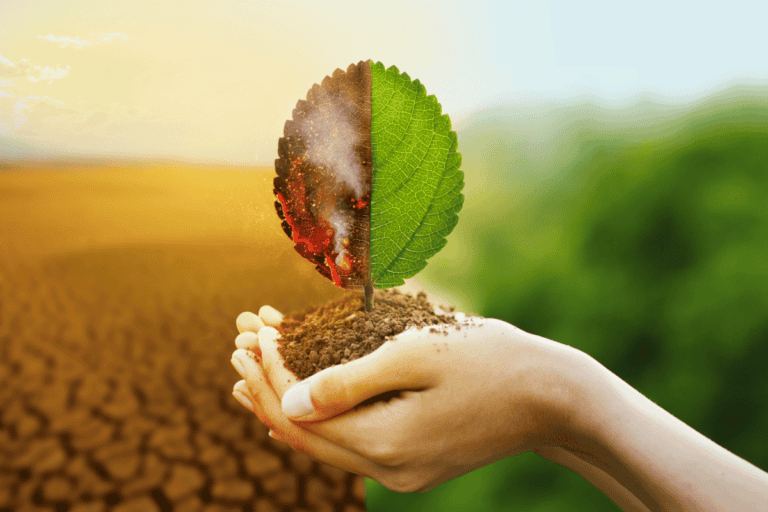Stoicism and the Environment: Cultivating Ecological Stewardship
Embrace Stoic principles for ecological stewardship by fostering mindful connection with nature. Cultivate simplicity, sustainability, and ethical consumption to align actions with values. Reflect on your ecological footprint, practicing gratitude for Earth's resources. Adapt to challenges resiliently, empowering sustainable living. Harmonize with nature by understanding interconnectedness and balance. Embody mindfulness and respect for all living beings. Advocate for policies promoting environmental conservation to benefit future generations. Discover a path to cultivate ecological mindfulness and sustainable living practices.
Key Takeaways
- Integrating Stoic principles fosters mindful ecological stewardship.
- Cultivate awareness of interconnectedness and nature's wisdom.
- Practice responsible consumption aligned with sustainability.
- Embrace gratitude for Earth's resources and promote ethical stewardship.
- Advocate for policies supporting environmental conservation through Stoic ethics.
Stoic Principles for Environmental Stewardship
Embracing Stoic principles can guide individuals towards more mindful and responsible environmental stewardship. By integrating eco-conscious mindfulness into daily practices, one can develop a deeper connection with nature and a heightened sense of responsibility towards the environment. Stoic eco ethics emphasize the importance of living in harmony with nature, viewing the world as a unified and interconnected whole where every action has a ripple effect.
Practicing Stoicism can help cultivate a mindset that values simplicity, sustainability, and ethical consumption. By being more mindful of the environmental impact of your choices, you can align your actions with your values and contribute to a more sustainable world. Stoic principles encourage individuals to focus on what's within their control, such as reducing waste, conserving resources, and supporting environmentally friendly practices.
Incorporating Stoic eco ethics into your life can lead to a more meaningful and fulfilling existence, grounded in a sense of purpose and responsibility towards the planet. By embracing these principles, you can become a more conscious and proactive environmental steward, making a positive impact on the world around you.
Applying Stoic Ethics to Sustainability
Applying Stoic ethics to sustainability requires a conscientious examination of one's consumption habits and environmental impact. Stoic mindfulness prompts you to reflect on your actions, considering how they align with nature and the greater good. Sustainable living becomes a way to embody Stoic principles, recognizing the interconnectedness of all things and the importance of moderation.
In practicing Stoic mindfulness, you can cultivate awareness of your ecological footprint. Consider the resources you consume and the waste you produce. Aim to live in harmony with nature, minimizing unnecessary consumption and waste. Embrace a mindset of gratitude for the Earth's resources, recognizing their finite nature and the need for responsible stewardship.
Cultivating Resilience in Eco-Friendly Practices
To further enhance your eco-friendly practices, consider fostering resilience in your approach to sustainability by adapting to challenges and setbacks with a mindset of adaptability and perseverance. Embracing resilience training can empower you to navigate the complexities of sustainable living more effectively. By cultivating a resilient mindset, you can bounce back from obstacles, learn from failures, and continuously improve your eco-friendly habits.
Here is a table illustrating the key components of cultivating resilience in eco-friendly practices:
| Resilience Training | Key Aspects | Benefits |
|---|---|---|
| Adaptability | Embracing change | Enhanced flexibility |
| Perseverance | Persistence in efforts | Overcoming obstacles |
| Learning from setbacks | Turning failures into lessons | Continuous improvement |
| Mindful reflection | Evaluating actions | Enhanced decision-making |
| Community support | Building networks | Shared knowledge |
Harmonizing With Nature: a Stoic Approach
In cultivating a harmonious relationship with nature from a Stoic perspective, you must align your actions with the natural order and seek to understand your place within the interconnected web of the universe. Nature's wisdom, evident in its cycles and patterns, offers valuable insights that Stoics believe can guide human behavior towards a more balanced existence. By observing nature's rhythms and interconnectedness, you can learn to adapt and flow with the changing tides of life, fostering a deeper connection to the world around you.
Stoicism emphasizes the importance of maintaining Stoic balance, which involves cultivating a sense of tranquility and equanimity in the face of life's uncertainties. By embracing Stoic principles and aligning your actions with nature's wisdom, you can aim to lead a more harmonious and fulfilling life. This approach encourages mindfulness, self-awareness, and a deep respect for the natural world, ultimately fostering a sense of unity and interconnectedness with all living beings. By embodying these values, you can contribute to the well-being of the planet and nurture a more sustainable future for generations to come.
Stoicism's Role in Environmental Conservation
Aligning your Stoic principles with environmental conservation efforts can pave the way for a more sustainable future grounded in harmony with nature. By integrating Stoic teachings into your approach to environmental conservation, you not only contribute to the well-being of the planet but also nurture your own inner resilience and strength.
Here are three key ways Stoicism can influence your environmental conservation practices:
- Mindful Consumption: Embrace the Stoic idea of moderation and mindfulness in your consumption habits. By being more intentional about what you consume and opting for sustainable products, you can reduce waste and minimize your environmental impact.
- Eco-Conscious Behavior: Cultivate a deep sense of responsibility towards the environment through your actions. Practice eco-conscious behaviors such as recycling, reducing energy consumption, and supporting initiatives that protect natural habitats.
- Stoic Ethics in Action: Put Stoic ethics into practice by advocating for policies and practices that promote environmental conservation. Use your Stoic principles to guide you in making decisions that benefit not just yourself but also future generations and the planet as a whole.
Conclusion
So there you have it, embracing stoicism can indeed help cultivate ecological stewardship. Who knew that ancient philosophical principles could guide us in protecting the environment?
It's ironic, isn't it? But maybe it's exactly what we need in this modern age of climate crisis. Let's continue to apply stoic ethics, cultivate resilience, and harmonize with nature.
Stoicism may just be the key to ensuring a sustainable future for all.








